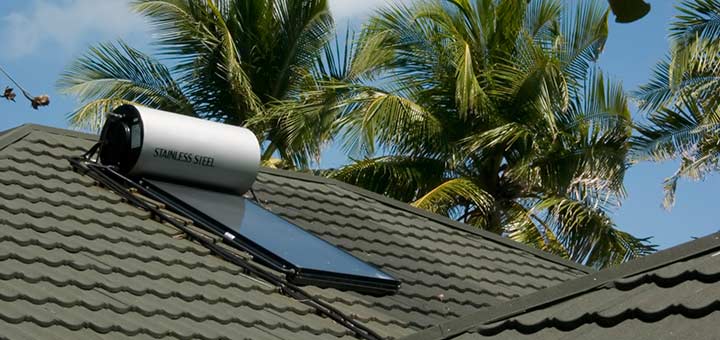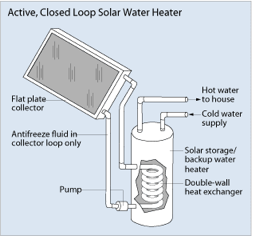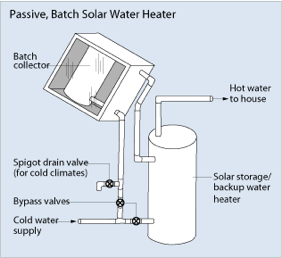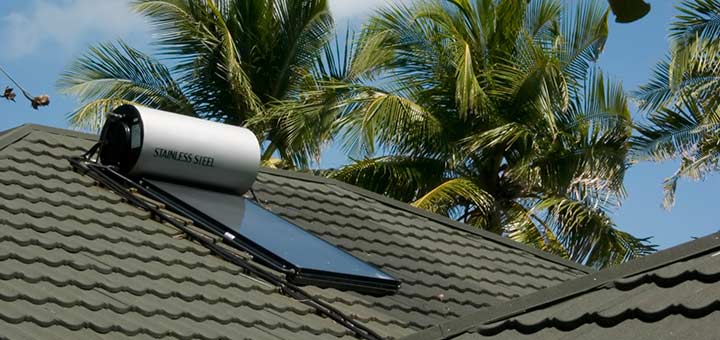
Most property owners today have some type of water heater in their home.
In fact, water heaters are one of the most common home appliances as they provide an essential addition to any home. While water heaters are important, they are known for taking up a great deal of energy. There are several tips and tricks that can be done to your water heater in order to cut down on energy costs; however, the best way to lower your monthly electricity costs with this appliance might be to invest in a solar-powered one.
That said, before you buy one of these solar water heaters, it is important to know about the best way to shop for these devices to ensure you?re making a smart investment.
Why Solar Water Heaters?
Most consumers who look at the price tag of a solar water heater will likely wonder why these devices are such great investments. While solar water heaters do tend to be more expensive to install upfront, in the long-run they can save you a great deal on your monthly energy costs. Most studies have found that solar water heaters will actually cut your energy bill in half.
These tanks provide the same reliability and dependability as traditional water tanks. You can still rely on solar water heaters to always keep your home filled with cold water. When you aren?t able to get enough sun to power the unit, most tanks have an auxiliary tank available that is heated by either oil or gas, so you always have warm water.
Buying a Solar Water Heater: Using the Right Solar Collectors
Before you can invest in a new solar water heater, it is important to know about some of the technical terms used to describe these fixtures. One of the most important terms is the solar collector.
There are several differences that come with solar water heaters when compared to more traditional solutions, one of the biggest differences is the addition of a solar collector. In solar water heaters, the water storage tank is connected to the sun collector to heat the water using the collected solar power.
Residential solar water heaters typically use one of three types of solar collectors:
– Evacuated-tube solar collectors – These solar collectors are typically used in the United States for both residential and commercial use and are covered with rows of transparent glass. These are the most efficient collectors available.
– Flat-plate collector – Glazed flat-plate collectors are typically used outside as they are insulated, weatherproof boxes that come under glass or plastic covers. Unglazed flat-plate collectors on the other hand do not come with a cover and are typically used to heat pools.
– Integral collector-storage system – These systems, also known as ICS or batch systems, are designed for climates that experience mild or infrequent freezing temperatures as they feature outdoor pipes that may freeze in severe weather.
Shopping for Passive and Active Solar Water Heaters
When it comes to choosing a solar water heater, it is essential that you look at the circulation system behind this machine. There are two main types of solar water heating systems, passive systems and active systems.
 Active Solar Water Heaters
Active Solar Water Heaters
Active solar water heaters have circulating pumps and controls and either feature a direct circulation system or an indirect circulating system.
– Direct Circulation Systems – These systems use pumps to circulate household water through the device?s collector and into the home. Typically, these solar water heaters are used in warmer climates.
– Indirect (Closed Loop) Circulation Systems – These active solar water heaters user pumps to circulate a non-freezing, heat transfer fluid through the collectors and into a device known as a heat exchanger. Many homes in cooler climates use these systems as they are better equipped to handle freezing winter temperatures.
One of the most popular types of solar water heaters, found in most residential properties, are active, closed loop heaters. These are indirect circulation systems which use a flat plate collector that travels through a pump and into a double well heat exchanger unit before being distributed to the rest of the home.
 Passive Solar Water Heating Systems
Passive Solar Water Heating Systems
Passive solar water heating systems are typically a more economical solar heating solution for residential customers. While they typically aren?t as efficient as active solar water heaters, they are known for their longevity and for lasting longer than their active counterparts.
There are two main types of passive solar water heaters available: integral collector-storage systems and thermosyphon systems.
Integral collector-storage passive systems – This type of passive solar water heating system works best in warmer climates and in homes that need a lot of hot-water during the daytime and evening.
Thermosyphon systems – These collectors tend to be heavy and expensive but are durable enough to handle cold weather climates. These systems use a simple design that allows warm water to rise while cool water falls to the bottom of the tank.
How to Find the Right Solar Water Heater For Your Property
As you start to shop for a new solar water heater, there are a few things to keep in mind. First, you need to determine whether you need an active or passive solar water heater and what type of circulation system best fits your individual needs.
As with traditional water heaters, you also need to pay close attention to size. If you invest in a water heater that is too big or too small for your home, you will end up wasting energy.
A solar water heater can be a big investment for your residential property, so you should become well-versed in this product and what type of solutions are available before investing in a new system. However, with the right information behind your shopping experience, you can end up with a durable, effective, long-lasting solar water heater that can in-turn pay for itself and save you thousands on energy costs.



